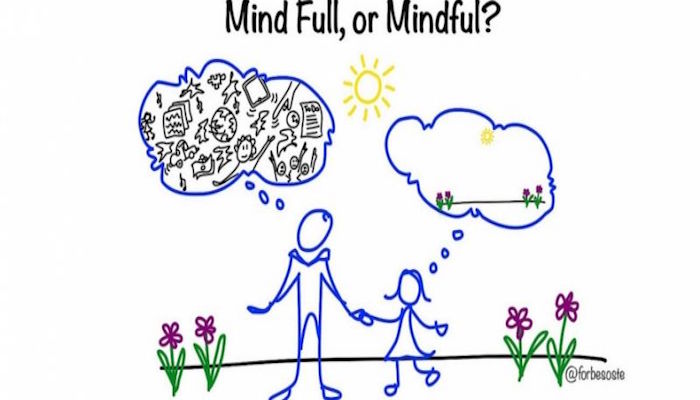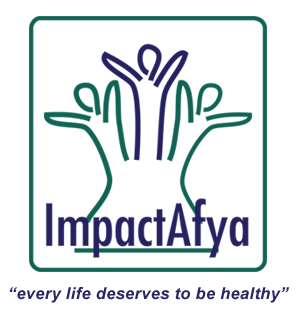Mindfulness – The Business Tool for 21st Century

Yoga is a 5,000 year old practice having its origin in India and aims to transform both body and mind. In 2014, recognizing its importance in today’s world, the United Nations General Assembly declared 21st June as the International Day of Yoga. Tanzania joined the world in celebrating the 2nd International Yoga Day last week and I wondered if there was any company representation – are Tanzanian companies promoting yoga, meditation and mindfulness at their workplaces?
The Harvard Business School along with INSEAD – Europe’s leading business school – have concluded from their research that the two most effective business tools for twenty-first century executives are meditation and intuition. The benefits of meditation in the workplace are cumulative; they build on one another, starting with the individual and from there, positively impacting the performance of the business as a whole.
In order to remain competitive in todays market, successful companies need:
- To possess a clear vision of their goals
- Inspiration to be innovative in their approach to supplying products and services
- Leadership to guide individuals towards success
- Teamwork to enable employees to keep up in todays global marketplace
Most individuals find that their potential is seriously limited by stress, which can:
- Block creativity, inspiration and mental clarity
- Damage relationships with others, which In turn negatively impacts teamwork
- Cause insomnia, which leads to a decrease in new thinking, inspiration and innovation
- Cause anxiety, which can make it difficult to work on a team that requires patience and collaboration
- Cause individuals to doubt their true talents, which can lead to limiting thoughts and inhibit drive and passion
Meditation is seen by a number of researchers as practically one of the most effective forms of stress reduction and has the potential to improve quality of life. According to Deepak Chopra, an expert in mind-body healing techniques and a world-renowned author and speaker, “Stress is the no. 1 epidemic of our civilization. Directly or indirectly, it is it is related to things like insomnia, anxiety, fear, cardiovascular illness, inflammation in the body, heart disease, autoimmune illnesses. Many kinds of cancers are connected directly or indirectly to inflammation in the body. So meditation is a very effective way to start tackling this problem – this epidemic of stress”
Meditation consists of focusing on your full attention on your breath as it flows in and out of your body.
Mindfulness is nothing but simply a method of mental training, where you don’t have to sit cross-legged on the floor. You can practice mindfulness while sitting on a chair, your favorite sofa, on buses, trains, planes, ships or while walking. You can meditate more or less anywhere – I inevitably go into a meditative state when floating on my back in the swimming pool or vast ocean.
A mindful practice does not take a lot of time, although some patience and persistence are required. Meditation is not a religion – it is about seeing the world with greater clarity so that you can take wiser and more considered action to change those things, which need to be changed. Meditation helps cultivate a deep awareness that allows you to assess your goals and find the optimum path towards achieving them.
Scientific studies have shown that mindfulness not only prevents depression, but that it also positively affects the brain patterns underlying day-to-day anxiety, stress, depression and irritability. With mindfulness, memory improves, creativity increases and reaction times become faster.
Notable CEOs and companies who have introduced mindfulness at workplaces are;
- Steve Jobs, who was considered a pioneer of “Mind Technology”, used it to reduce his own stress, gain more clarity and enhance his creativity and shared it with Apple’s corporate culture
- Google had one of their original software developers spearhead a program at Google that began in 2007 called “Search inside Yourself”, believing that meditation can help improve not only employee mental health and well-being, but the company’s bottom line as well
- Proctor and Gamble CEO is quoted as saying : “You cannot out-work a problem – you have to out-meditation it”
- Nike holds regular Mindful workshops for its leadership teams
- HBO holds regular yoga classes and meditation.
- AETNA CEO claims that “ The busier you are, the more you need mindfulness” and has introduced a mindfulness training program designed to teach employees to center themselves through yoga and mediation.
The approach these successful companies are taking is not hard to implement. Whether you own a small business or work for a corporate giant, introducing this age-old practice helps balancing work and life, and encourages focus, creativity and innovation. Meditation at work can help:
- Decision-making: Greater mental clarity is crucial for everyone, especially those who are entrusted with making difficult strategic decisions that could affect the future of the company. Big or small, you need to have clarity on your business decision and reduce your risk.
- Emotional intelligence: You are able to tune in to others, which is so vital in bringing out the best in people where they feel valued, appreciated and empowered
- Presence: You are able to focus on the current needs of business while avoiding unnecessary distractions.
- Memory: You are able to remove clutter from your mind and focus your memory on important things that matter
- Listening: with clarity, you listen attentively and gain the trust of others
- Sense of Purpose: You find clarity on your sense of purpose and work towards that
- Leadership: the positive energy your put out can have a huge impact on those around
Even Harvard has unveiled an MRI study proving that meditation literally rebuilds the brains grey matter in 8 weeks.
Reply back to bhakti@impactafya.com with your feedback and we welcome your suggestions for corporate wellness issues you’d like to see covered in our future columns.
Bhakti Shah, MPH is the Founder and Managing Director of ImpactAfya Ltd, collaborating with Workplace Options and Mayo Clinic, USA to provide Corporate Wellness Solutions in East Africa. Bhakti is also the Immediate Past President of the American Chamber of Commerce in Tanzania and the District Chair for Health Concerns for Rotary District 9211.
